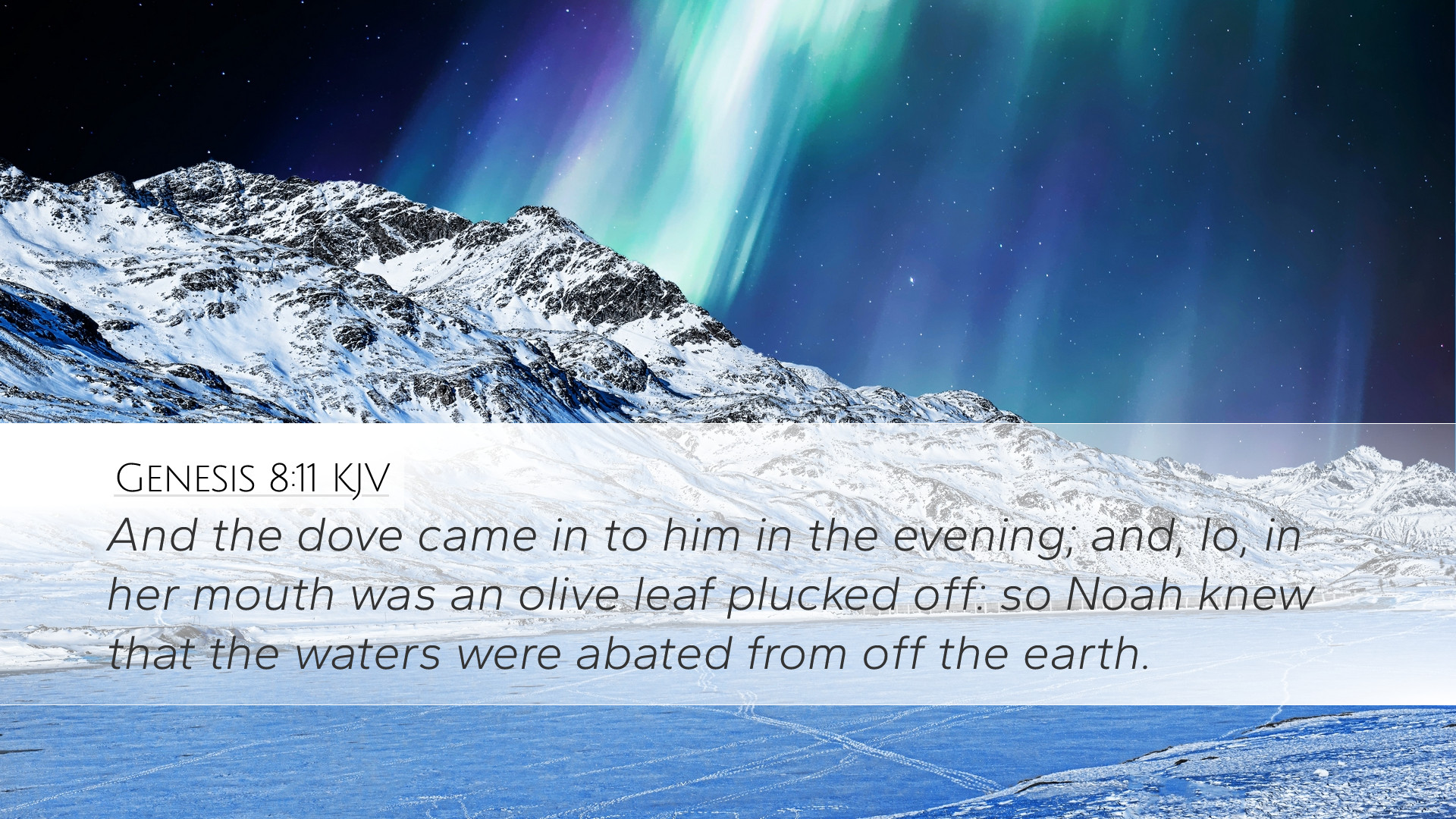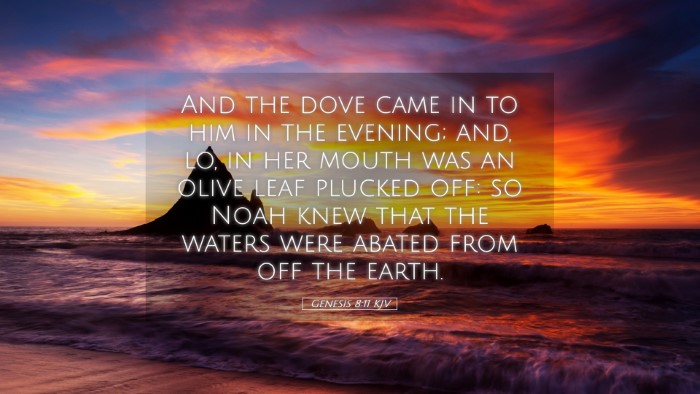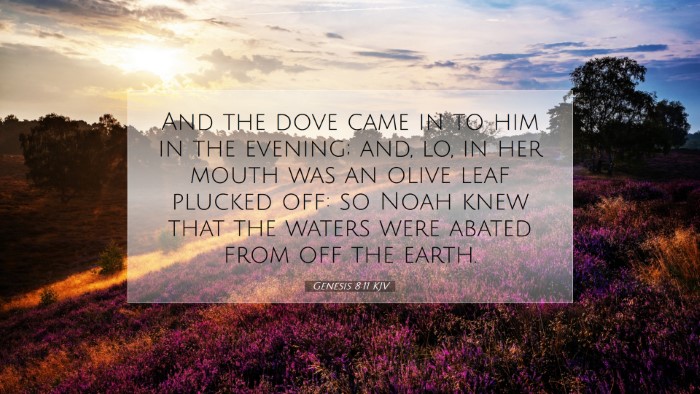Commentary on Genesis 8:11
Genesis 8:11 states: "And the dove came in to him in the evening; and, lo, in her mouth was an olive leaf plucked off: so Noah knew that the waters were abated from off the earth."
Overview
This verse occurs after the Great Flood, signaling God's judgment and subsequent mercy. The dove's return with an olive leaf serves as a powerful symbol of hope and renewal, illustrating the restoration of life after destruction.
Matthew Henry's Insights
-
Symbolism of the Dove: Matthew Henry notes that the dove is often seen as a symbol of purity and peace, paralleling the Holy Spirit's characteristics. The dove's flight symbolizes the soul's quest for peace even amid turmoil.
-
Significance of the Olive Leaf: Henry interprets the olive leaf as a sign that the earth was recovering from the waters. The olive tree itself is a symbol of peace and longevity, suggesting a promise of God's restoration of creation.
-
Noah’s Assurance: The return of the dove not only assures Noah of subsiding waters but also reflects God’s faithfulness in fulfilling His promises. This moment serves as a reminder of God’s covenant relationship with humanity.
Albert Barnes' Analysis
-
Divine Providence: Barnes emphasizes that the incident illustrates God's provision for life. The dove brings back the olive leaf, indicating that the earth is becoming fruitful again, a reflection of God’s sustaining power.
-
Importance of Timing: The timing of the dove’s return in the evening highlights the significance of waiting for divine approval and confirmation. This teaches the importance of patience in faith while awaiting God’s revelation and timing.
-
Theological Implications: Barnes discusses the theological implications of this event as a precursor to Christ, where the dove symbolizes the Holy Spirit at Jesus' baptism, marking a new beginning and anointing for ministry.
Adam Clarke’s Commentary
-
Literary and Cultural Context: Clarke provides insights into the cultural understanding of doves in ancient Near Eastern societies, where they are associated with love and fidelity, adding depth to their appearance in this narrative.
-
Symbol of Hope and Renewal: He draws on the olive leaf's symbolism, representing hope and new life. The return with the olive branch creates a profound image of God restoring creation after judgment.
-
Application for Believers: Clarke encourages believers to find hope in the cyclical nature of life, suggesting that every end has the potential for a new beginning, much like the earth’s renewal after the Flood.
Theological Significance
The olive leaf brings multiple layers of meaning. It showcases God's mercy following judgment—though the Flood was a necessary act of divine justice, it was not the end of creation.
This moment in Genesis serves as a type of resurrection; just as God brought life back to the earth, He also desires to bring new life to humanity through Christ.
Practical Application for Today
-
Hope in Despair: Just as Noah received the olive leaf, Christians today are called to trust in God's ability to renew their lives and situations, no matter how dire circumstances may seem.
-
Faithful Waiting: The passage teaches the importance of waiting on God during challenging times, fostering patient trust in His timing and plans.
-
Symbol of Reconciliation: The olive branch can also be seen as a call for reconciliation among individuals and nations, illustrating the Christian responsibility to pursue peace actively.
Conclusion
In summary, Genesis 8:11 is rich in symbolism and practical insights, offering a message of hope, renewal, and the faithfulness of God. Through the perspectives of key commentators like Matthew Henry, Albert Barnes, and Adam Clarke, we see the verse transformed into a profound declaration of God's love, mercy, and ongoing covenant with creation.


